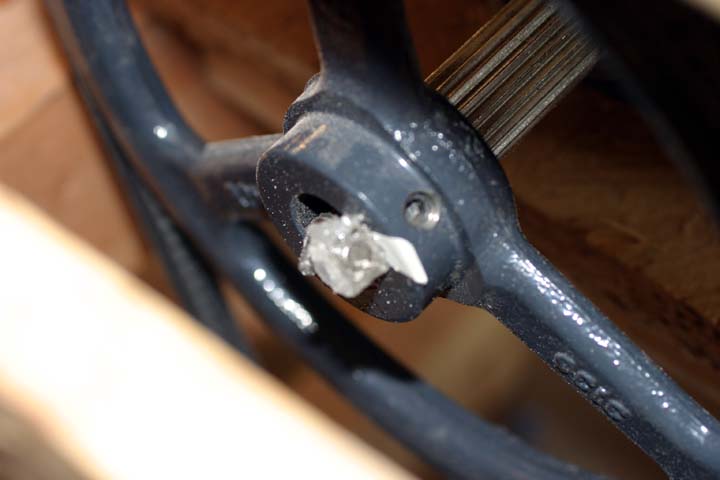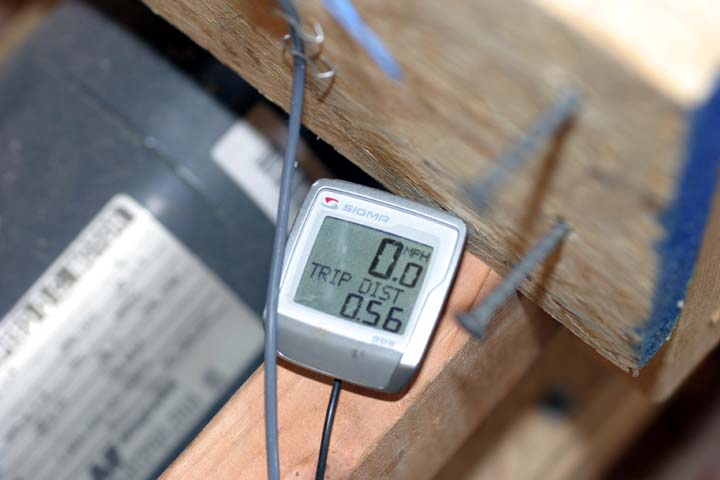Measuring RPM with the Sigma Sport
Measuring the voltage signal with a
multimeter frequency counter proved to be unreliable. The noise
made the numbers erratic. I needed something more stable. I
decided to use a Reed switch and clock the open/closing with a bicycle
tachometer.
Bicycle enthusists use a small computer to measure their speed. A small magnet mounted on the wheel travels around and passes the reed switch. When the switch closes the computer clocks one revolution. By knowing the wheel circumference one can calculate speed. One can do a little math to enter a wheel circumference so one revolution equals 1 mph, which we can use to measure RPM. One mph equals one rpm; ten mph equals ten rpm. In our case it turns out to be 10 rpm = 1.0 mph.
Here is the math: 1 rotation/min * Circumference (mm)/rotation * 60 min/hr * 1 mile/1609344 mm = 1 mile/hr
Solving for the circumference we get 26822mm. I use the Sigma Sport bicycle computer and it can accept four digits for the wheel. By using 2682mm every 1mph registered equals 10 rpm.
I mounted a small neodymium magnet on the flat part of the shaft key and used some two part epoxy to encase it around the shaft. I made a holder for the reed swich and ran the wires to the Sigma Sport computer. I ran the bench to 700 rpm and I was able to get smooth readings across the whole range. Here are some pictures.

Magnet on key encased with two part epoxy. This magnet is not going anywhere.

The reed switch is contained within the plexiglass. When assembled it sits very close to the
magnet.

Bicycle enthusists use a small computer to measure their speed. A small magnet mounted on the wheel travels around and passes the reed switch. When the switch closes the computer clocks one revolution. By knowing the wheel circumference one can calculate speed. One can do a little math to enter a wheel circumference so one revolution equals 1 mph, which we can use to measure RPM. One mph equals one rpm; ten mph equals ten rpm. In our case it turns out to be 10 rpm = 1.0 mph.
Here is the math: 1 rotation/min * Circumference (mm)/rotation * 60 min/hr * 1 mile/1609344 mm = 1 mile/hr
Solving for the circumference we get 26822mm. I use the Sigma Sport bicycle computer and it can accept four digits for the wheel. By using 2682mm every 1mph registered equals 10 rpm.
I mounted a small neodymium magnet on the flat part of the shaft key and used some two part epoxy to encase it around the shaft. I made a holder for the reed swich and ran the wires to the Sigma Sport computer. I ran the bench to 700 rpm and I was able to get smooth readings across the whole range. Here are some pictures.
Magnet on key encased with two part epoxy. This magnet is not going anywhere.
The reed switch is contained within the plexiglass. When assembled it sits very close to the
magnet.